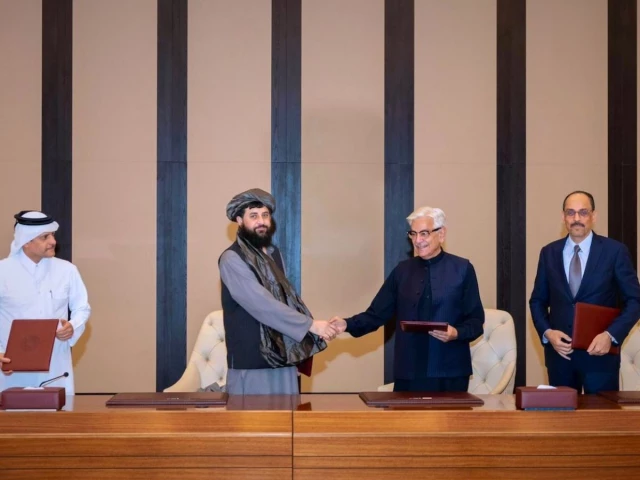Saudi Arabia on Sunday welcomed the announcement of an immediate ceasefire between Pakistan and Afghanistan. Source: x.com/arabnews
Pakistan has agreed to resume talks with the Afghan Taliban at the request of the host countries, a move that will keep the Pakistani delegation in Istanbul longer than planned.
The decision was taken to give the negotiation process another chance, but that Pakistan’s core demand – that Afghan territory not be used to carry out terrorism against Pakistan – will remain central to any renewed discussion.
Radio Pakistan also wrote on X about the renegotiations
The talks will focus on Pakistan’s key demand that Afghanistan take clear, verifiable and effective action against terrorists. Pakistan had repeatedly pressed the Taliban to prevent cross-border attacks and to comply with written commitments under the Doha agreement.
Read: Explained: Pakistan-Afghanistan border conflict
Information Minister Attaullah Tarrar, who had previously described the Istanbul talks as a failure, said the Afghan delegation had avoided providing workable assurances despite being presented with “logical and legitimate demands”.
He said Pakistan had presented solid and “indisputable” evidence of cross-border terrorist activity, which was acknowledged by the hosts and the Afghan side, but no practical assurances were offered.
“Despite accepting the evidence from the host countries and the Afghan delegation, no practical assurances were given,” Tarrar told reporters, explaining the reasons why the previous round of talks failed.
He accused the Afghan representatives of deviating from the core agenda and relying on “delay tactics, blame shifting and excuses”.
Defense Minister Khawaja Asif warned that Pakistan would not tolerate violations of its territorial integrity.
“If the Taliban government violates our borders, we will respond,” he said, adding that if necessary, Pakistan would carry out strikes inside Afghanistan in response to attacks launched from Afghan soil.
Read more: Peace negotiations between Pakistan and Afghanistan have stalled
Speaking to the media at Parliament House, Mr Asif said mediators at the talks had reached the same conclusion about Kabul’s intention. “The Islamabad-Istanbul talks ended last night; the mediators also realized what Kabul’s intentions were – the breach in Kabul’s intentions became clear to all. Now there is no cure, only prayer remains,” he said.
Pakistan had repeatedly protested attacks attributed to groups it described as India-backed – Fitna-ul-Khawarij and Fitna-ul-Hindustan – and had insisted on implementation of the Doha agreement commitments. Pakistan has demanded clear, verifiable action from the Afghan side to stop cross-border terrorism.
The decision to continue negotiations comes after a previous round in Istanbul failed to provide concrete assurances. Pakistani sources said the delegation – which had been preparing to return home – would now remain to pursue further engagement at the hosts’ request.



